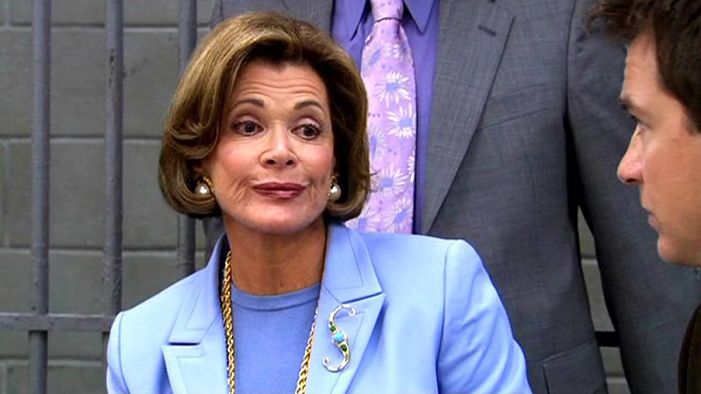Real Talk: My Grandmother Recently Died. I Used to Hate Her.

My grandmother died last month at the age of 88, in a nursing home, her mind riddled with Alzheimer’s. Her death wasn’t sudden and it came at just the right time—she could still remember her children, could smile at them, and she wasn’t violent, as some with Alzheimer’s can be, though she could no longer speak. I had been anticipating her death for a long time, but it was still a shock when I got the message from my dad. Tears came to my eyes. I went into my husband’s childhood bedroom—we were staying with his dad at the time—and curled up into a ball. I was feeling a strange mixture of emotions because I’d spent most of my life hating my grandmother, blaming her for a lot of my insecurities andpsychological hang-ups.
My grandmother, as you can probably guess, wasn’t the gingerbread-baking, gift-and hug-giving fairy that many other grandmothers seem to be (and that my other grandmother was). She was a volatile and demanding woman, a woman who made me practice piano in front of her and yelled at me when I made mistakes, forcing me to play the piece over and over again. Of course, instead of getting better each time, under that kind of pressure, I got worse and so she got angrier until I’d burst into tears and she’d turn away disgusted. Once, observing how far my ears stuck out from my head, she told me I should get surgery (yes, that exists). Another time, while my brother and I were alone with her over summer vacation, we overslept in the morning and, when she finally got into our separate hotel room, she pulled us forcefully out of our beds, screaming at us that we’d ruined the day. On that same trip, she accused me of lying for attention when I tried to be excused from dinner because of a stomachache. I was ten at the time. My brother was 12.
She was judgmental and impossible to reason with and frequently made racist remarks. Every time we saw her, we walked on eggshells, fearful there would be a scene—and, usually, there was—a fight picked over the smallest, strangest things, a fight for the sake of a fight. I found her terrifying and cruel. Growing up, I honestly felt, on multiple occasions, that I never wanted to see her again. After high school, I saw her almost exclusively on holidays—Thanksgiving and Christmas—and, I think as a result of that, our relationship became more stable, less rancorous. Mostly, I tried to stay out of her way and, along with the rest of my family, to agree with her even when I disagreed.
She was never diagnosed with a personality disorder in her lifetime, but when my father described some of her symptoms (paranoia, extreme mood swings, and tantrums) to a psychiatrist, he said it sounded like she had some kind of disorder. Knowing that perhaps my grandmother wasn’t as in control as she seemed made me feel slightly more sympathetic for her. And, then, looking back on her life now, I also believe that if she—an extremely ambitious women, who, I think, pushed many of her own thwarted dreams onto her daughter and then onto me, her granddaughter—had been born 20 years later and raised during a time when more opportunities were open to women, she might have been different, happier.
When she died, I expected I wouldn’t feel very sad and that this lack of feeling would, in turn, make me feel guilty. Instead, I did feel sad. I did cry. I thought about my grandmother’s life, I thought about her intelligence and her laughter. I thought about how, toward the end of her life, but before she started losing her mind, she had asked my parents about me frequently, had expressed her admiration for what I’d accomplished, for what I was doing. I wondered if things could have been different between us—but I didn’t think so. She was a complicated and troubled woman. My own feelings for her were—and still are—complicated and troubled. I hated her for a long time, yes, but she helped me become who I am—without her, I would have been a weaker person. And I am grateful to her for that.












